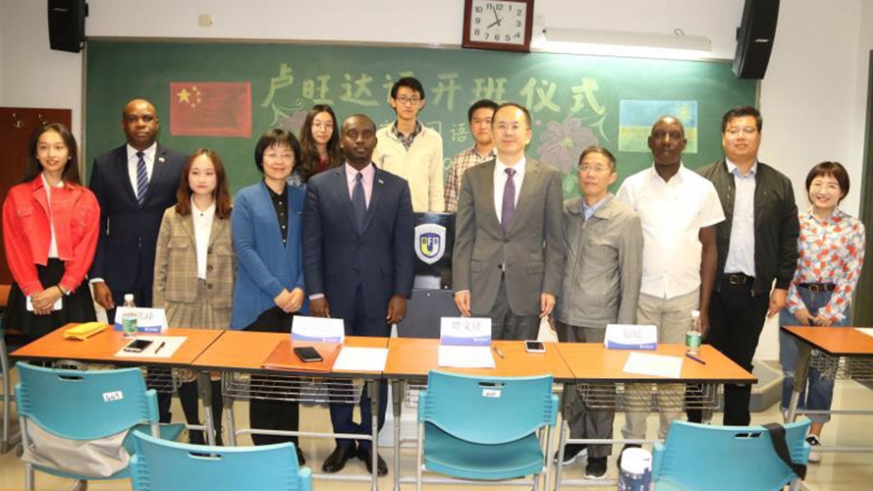The move to introduce Kinyarwanda at the Beijing Foreign Studies’ University (BFSU), to become the second language in East Africa taught at the Chinese university after Kiswahili, according to officials, is as a result of an existing framework between the University of Rwanda and the Chinese university as well as the good friendship between the two countries.
Speaking during the launch of the Kinyarwanda course on Tuesday in Beijing, Prof. Jia Wenjian, the Vice President of the University noted that the move is a true symbolic relationship value that Rwanda and China attach to each other.
“We applaud the launch of the Kinyarwanda language to be taught to Chinese students. Our students will learn and strive to master the language,” Jia said.
Reiterating the friendship between China and Rwanda, Shu Zhan, a former Chinese Ambassador to Rwanda said that China and Rwanda share common vision of development.
“When I was the Ambassador of China in Rwanda, I witnessed a common vision and good values by Rwandans in their determination to find solutions to their problems (homegrown solution) this has enabled the country’s development over the past decade,” Shu said.
The former envoy added that the current image of Rwanda reflects the hardworking of Rwandan people and their leadership. Virgile Rwanyagatare, the Charge d’Affaire at the Rwandan embassy in Beijing praised the cooperation between the University of Rwanda and Beijing Foreign Studies University that resulted in introducing the Kinyarwanda language to Chinese students.
This will among others enable people-to-people exchange between Rwandans and Chinese people in the future, he added. Dr Patrice Ntawigira, the Kinyarwanda language course instructor from the University of Rwanda, appreciated the BFSU extolled the move to enrol the Kinyarwanda course among other foreign languages taught at the university.
“You have made a good choice; Kinyarwanda language is now used and spoken by about forty (40) million people in the Great Lakes Region of Africa. Kinyarwanda is among the most-used African languages after Kiswahili.
“It stretches in a great region of Central Africa. With Kinyarwanda and Kiswahili, the graduates will be able to communicate with almost all peoples in the sub-Saharan region,” he said.
Teaching and learning Kinyarwanda at the university could not have come at a better timing that when both countries are celebrating 48 years of good diplomatic relations.
On the other side, the Chinese language has also been introduced to some Rwandan secondary schools to enhance people to people interactions and cooperation
















